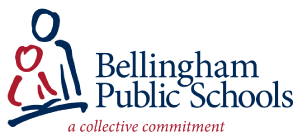The following uses of district transportation are a privilege, not a right, and, except where bound by the terms of a lease, the district may revoke that privilege. The superintendent will have the authority to modify transportation services for school and extracurricular activities. Arrangements for such trips must be made through Transportation. If a district vehicle is unavailable or inappropriate for use, Transportation will organize an alternative means of transportation.
During trips that are part of the regular school program, students shall be accompanied at all times by at least one teacher or other designated district employee who has been approved by the school principal. Administrators working with district transportation may deny transportation to any student who violates the district’s written rules and regulations.
School Activities
Transportation may be provided by the district for all activities which have been officially designated by the superintendent as school activities and approved by the school principal or staff director. Activities may include, but not be limited to:
- Educational field trips growing out of regular classroom activity which are planned by the teacher, approved by the principal and supervised by school staff; and
- Athletics, debate, drama or music programs or other activities related to the school program.
The superintendent may consider adding other activities as official school activities that are eligible for transportation.
Extracurricular Activities
The superintendent may authorize the use of district transportation vehicles transporting nonparticipating students to extracurricular activities. Such vehicles may be so used when the users pay an amount sufficient to reimburse the district for the complete cost of such use. District drivers will be used on all such trips on school buses. Participants will be supervised by staff.
Leasing of Buses
The board may enter into a written lease agreement with a governmental agency transporting personnel, supplies and/or evacuees in the event of a major forest fire, flood or other natural disaster.
Such a lease agreement will contain a clause absolving the district of any and all liability arising from the lessee’s use and operation of the district’s buses and a clause requiring the lessee to maintain adequate insurance to recompense the district for the potential loss of the buses leased. Potential users will stipulate in writing that commercial or charter bus service is not reasonably available to provide the services for which a school bus is needed. The user will reimburse the district for the actual costs plus a reasonable fee for use of the bus. Funds derived from the lease of a surplus bus will be deposited in the transportation vehicle fund. If a bus is a part of the regular fleet, the funds derived from a rental or lease agreement may be deposited in the general fund.
Cooperative Programs
The board may enter into cooperative transportation agreements with other districts when it is economically advantageous to the cooperating districts and when it does not impair the quality of educational programs available to students.
| Cross References: | Content |
|---|---|
Policy 6605 – Student Safety Walking to School and Riding Buses |
| Legal References: | Content |
|---|---|
RCW 28A.160.010 Operation of student transportation program — Responsibility of local district — Transporting of elderly — Insurance |
| Management Resources: | Content |
|---|---|
